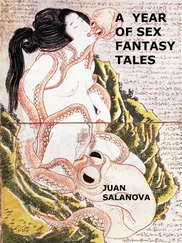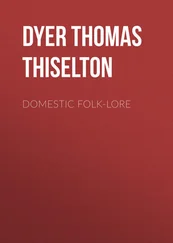John Macgowan - Chinese Folk-Lore Tales
Здесь есть возможность читать онлайн «John Macgowan - Chinese Folk-Lore Tales» — ознакомительный отрывок электронной книги совершенно бесплатно, а после прочтения отрывка купить полную версию. В некоторых случаях можно слушать аудио, скачать через торрент в формате fb2 и присутствует краткое содержание. Жанр: foreign_prose, foreign_antique, на английском языке. Описание произведения, (предисловие) а так же отзывы посетителей доступны на портале библиотеки ЛибКат.
- Название:Chinese Folk-Lore Tales
- Автор:
- Жанр:
- Год:неизвестен
- ISBN:нет данных
- Рейтинг книги:4 / 5. Голосов: 1
-
Избранное:Добавить в избранное
- Отзывы:
-
Ваша оценка:
- 80
- 1
- 2
- 3
- 4
- 5
Chinese Folk-Lore Tales: краткое содержание, описание и аннотация
Предлагаем к чтению аннотацию, описание, краткое содержание или предисловие (зависит от того, что написал сам автор книги «Chinese Folk-Lore Tales»). Если вы не нашли необходимую информацию о книге — напишите в комментариях, мы постараемся отыскать её.
Chinese Folk-Lore Tales — читать онлайн ознакомительный отрывок
Ниже представлен текст книги, разбитый по страницам. Система сохранения места последней прочитанной страницы, позволяет с удобством читать онлайн бесплатно книгу «Chinese Folk-Lore Tales», без необходимости каждый раз заново искать на чём Вы остановились. Поставьте закладку, и сможете в любой момент перейти на страницу, на которой закончили чтение.
Интервал:
Закладка:
On making enquiries, he found that she was named Willow, that she was the daughter of the chief mandarin of the town in which she lived, and that she was intensely fond of the chase and delighted in galloping over the hills and valleys in the pursuit of the wild animals to be found there. So powerfully had Chan's mind been affected by what he had seen of Willow, that he had already begun to entertain serious thoughts of making her his wife; but while his mind was full of this delightful prospect he was plunged into the deepest grief by hearing that she had suddenly died. For some days he was so stricken with sorrow that he lost all interest in life, and could do nothing but dwell on the memory of her whom he had come to love with all the devotion of his heart.
A few weeks after the news of her death, the quiet of the retreat was one day broken by a huge procession which wound its way along the mountain path leading to the monastery doors. On looking out, Chan saw that many of the men in this procession were dressed in sackcloth, and that in front of it was a band of musicians producing weird, shrill notes on their various instruments.
By these signs Chan knew that what he saw was a funeral, and he expected to see the long line of mourners pass on to some spot on the hillside where the dead would be buried. Instead of that, however, they entered through the great gates of the monastery, and the coffin, the red pall of which told him that it contained the body of a woman, was carried into an inner room of the building and laid on trestles that had been made ready for it.
After the mourners had dispersed, Chan asked one of the priests the name of the woman who had died, and how it was that the coffin was laid within the precincts of the temple instead of in the house of the deceased, where it could be looked after by her relatives and where the customary sacrifices to the spirit of the dead could be offered more conveniently than in the monastery.
The bonze replied that this was a peculiar case, calling for special treatment.
"The father of the poor young girl who died so suddenly," he said, "was the mandarin of the neighbouring city of Eternal Spring. Just after the death of his daughter an order came from the Emperor transferring him to another district, a thousand miles from here.
"The command was very urgent that he should proceed without delay to take up his post in the far-off province, and that he was to allow nothing to hinder him from doing so. He could not carry his daughter's body with him on so long a journey, and no time was permitted him to take the coffin to his home, where she might be buried amongst her own kindred. It was equally impossible to deposit the coffin in the yamen he was about to leave, for the new mandarin who was soon to arrive would certainly object to have the body of a stranger in such close proximity to his family. It might bring him bad luck, and his career as an official might end in disaster.
"Permission was therefore asked from our abbot to allow the coffin to be placed in one of our vacant rooms, until the father some day in the future can come and bear the body of his beloved daughter to the home of his ancestors, there to be laid at rest amongst his own people.
"This request was readily granted, for whilst he was in office the mandarin showed us many favours, and his daughter was a beautiful girl who was beloved by everyone; and so we were only too glad to do anything in our power to help in this unhappy matter."
Chan was profoundly moved when he realized that the woman whom he had loved as his own life lay dead within a chamber only a few steps away from his own. His passion, instead of being crushed out of his heart by the thought that she was utterly beyond his reach, and by no possibility could ever be more to him than a memory, seemed to grow in intensity as he became conscious that it was an absolutely hopeless one.
On that very same evening, about midnight, when silence rested on the monastery, and the priests were all wrapped in slumber, Chan, with a lighted taper in his hand, stole with noiseless footsteps along the dark passages into the chamber of death where his beloved lay. Kneeling beside the coffin with a heart full of emotion, in trembling accents he called upon Willow to listen to the story of his passion.
He spoke to her just as though she were standing face to face with him, and he told her how he had fallen in love with her on the day on which he had caught a glimpse of her as she galloped in pursuit of the fox that had fled through the valley from the hunters. He had planned, he told her, to make her his wife, and he described, in tones through which the tears could be heard to run, how heart-broken he was when he heard of her death.
"I want to see you," he continued, "for I feel that I cannot live without you. You are near to me, and yet oh! how far away. Can you not come from the Land of Shadows, where you are now, and comfort me by one vision of your fair face, and one sound of the voice that would fill my soul with the sweetest music?"
For many months the comfort of Chan's life was this nightly visit to the chamber where his dead love lay. Not a single night passed without his going to tell her of the unalterable and undying affection that filled his heart; and whilst the temple lay shrouded in darkness, and the only sounds that broke the stillness were those inexplicable ones in which nature seems to indulge when man is removed by sleep from the scene, Chan was uttering those love notes which had lain deeply hidden within his soul, but which now in the utter desolation of his heart burst forth to ease his pain by their mere expression.
One night as he was sitting poring over his books, he happened to turn round, and was startled to see the figure of a young girl standing just inside the door of his room. It seemed perfectly human, and yet it was so ethereal that it had the appearance of a spirit of the other world. As he looked at the girl with a wondering gaze, a smile lit up her beautiful features, and he then discovered to his great joy that she was none other than Willow, his lost love whom he had despaired of ever seeing again.
With her face wreathed in smiles, she sat down beside him and said in a timid, modest way:—"I am here to-night in response to the great love which has never faltered since the day I died. That is the magnet which has had the power of drawing me from the Land of Shadows. I felt it there, and many speak about it in that sunless country. Even Yam-lo, the lord of the spirits of that dreary world, has been moved by your unchanging devotion; so much so that he has given me permission to come and see you, in order that I might tell you how deeply my heart is moved by the profound affection that you have exhibited for me all these months during which you never had any expectation of its being returned."
For many months this sweet intercourse between Chan and his beloved Willow was carried on, and no one in the whole monastery knew anything of it. The interviews always took place about midnight, and Willow, who seemed to pass with freedom through closed doors or the stoutest walls, invariably vanished during the small hours of the morning.
One evening whilst they were conversing on topics agreeable to them both, Willow unburdened her heart to Chan, and told him how unhappy she was in the world of spirits.
"You know," she said, "that before I died I was not married, and so I am only a wandering spirit with no place where I can rest, and no friends to whom I can betake myself. I travel here and there and everywhere, feeling that no one cares for me, and that there are no ties to bind me to any particular place or thing. For a young girl like me, this is a very sad and sorrowful state of things.
"There is another thing that adds to my sorrow in the Land of Shadows," she went on to say, with a mournful look on her lovely countenance. "I was very fond of hunting when I was in my father's home, and many a wild animal was slain in the hunting expeditions in which I took an active part. This has all told against me in the world in which I am now living, and for the share I took in destroying life I have to suffer by many pains and penalties which are hard for me to endure.
Читать дальшеИнтервал:
Закладка:
Похожие книги на «Chinese Folk-Lore Tales»
Представляем Вашему вниманию похожие книги на «Chinese Folk-Lore Tales» списком для выбора. Мы отобрали схожую по названию и смыслу литературу в надежде предоставить читателям больше вариантов отыскать новые, интересные, ещё непрочитанные произведения.
Обсуждение, отзывы о книге «Chinese Folk-Lore Tales» и просто собственные мнения читателей. Оставьте ваши комментарии, напишите, что Вы думаете о произведении, его смысле или главных героях. Укажите что конкретно понравилось, а что нет, и почему Вы так считаете.












